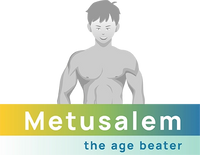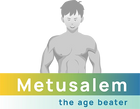The Incredible Benefits of Learning and Cognitive Engagement

In an ever-evolving world, the importance of maintaining a sharp mind and staying engaged can’t be overstated. Whether it is through acquiring new skills, diving into novel experiences, or simply challenging our brains with thought-provoking activities, the benefits of learning and cognitive engagement are vast and significant. Among the myriad ways to augment brain function, the nutritional benefits of pea protein powder should also be part of the conversation. This article aims to explore these enriching concepts, offering insights into why staying mentally active is crucial for personal development and overall well-being.
Understanding Cognitive Engagement
Cognitive engagement involves actively participating in activities that stimulate one's mind. From learning a new language to solving puzzles, this engagement can take various forms and boost our mental faculties significantly. It aids in developing critical thinking, adaptability, and enhances our ability to process information effectively.
How Learning Affects the Brain
Learning alters the structure of the brain. Neuroplasticity, the brain's ability to adapt and change, is a remarkable feature of human intelligence. When you learn something new, neurons form new connections, strengthening existing pathways. This encourages better communication between different brain regions, enhancing overall cognitive function.
The Importance of Continuous Learning
Continuous learning is critical in today’s fast-paced society. Whether you are a student, professional, or simply someone keen on self-improvement, the longer you engage in learning, the more adept you become. Here are a few key benefits:
- Improved Memory: Frequent learning activities promote better memory retention and recall. The brain's ability to store information becomes more robust.
- Enhanced Problem-Solving Skills: Engaging in complex tasks forces you to think critically, fostering sharper problem-solving capabilities.
- Increased Creativity: Learning different fields or subjects inspires creativity, enhancing your ability to generate new ideas.
- Boosted Confidence: As you master new skills or knowledge, your self-esteem and confidence grow, making you more willing to take on challenges.
Nutrition and Cognitive Function
While learning and engaging the mind are crucial, the role of nutrition, particularly the consumption of pea protein powder, should also be acknowledged. The brain requires a variety of nutrients to function correctly, and protein is one of them.
The Role of Protein in Brain Health
Protein is essential for creating neurotransmitters, which are the chemical messengers that facilitate communication between brain cells. Consuming adequate protein, especially plant-based sources such as pea protein powder, can lead to improved mood and cognitive performance. Incorporating this nutrient into your diet can provide a many-fold advantage:
- Supports Neurotransmitter Function: Protein-rich foods contribute to neurotransmitter balance, crucial for mood regulation.
- Enhances Focus: Consuming protein regularly helps maintain stable energy levels, crucial for prolonged concentration.
- Provides Essential Amino Acids: Pea protein contains ample amino acids, which are essential for overall brain function and cognitive resilience.
How to Incorporate Pea Protein Powder in Your Nutrition
Adding pea protein powder to your diet is straightforward and versatile. Here are some delicious ways to include it:
- Smoothies: Blend it with your favourite fruits and vegetables for a nutritious meal replacement.
- Baking: Incorporate it into your baking recipes like pancakes, brownies, or muffins to boost protein content.
- Soups and Stews: Mix it into soups or stews for added creaminess and nutrition without changing the flavour.
- Energy Bites: Use it in energy bite recipes combined with oats, nut butter, and other seeds for a quick snack.
Promoting Mental Well-being through Engagement
Cognitive engagement doesn’t only enhance intellectual capabilities—it also plays a significant role in mental well-being. Engaging in new activities fosters social connections, reduces feelings of loneliness, and increases happiness and satisfaction. Let's explore how these benefits manifest in our lives:
Social Connections and Cognitive Engagement
Joining classes or community groups can be an excellent way to expand your knowledge while meeting new people. Social interactions inspired by learning activities lead to stronger relationships, providing a support network that contributes positively to mental health.
Reducing Stress through Learning
Learning can act as a powerful stress-reliever. Engaging in hobbies, such as painting, writing, or even taking up new sports, distracts the mind from stressors. Additionally, with the emotional satisfaction that comes from mastering new skills, the reduction in anxiety is often profound.
Activities to Boost Learning and Cognitive Engagement
Here are some engaging activities that can stimulate the mind and promote cognitive health:
- Reading and Writing: Channel your thoughts or explore new worlds through literature. Writing can also help articulate complex ideas, clarifying your understanding.
- Puzzles and Games: Engage in Sudoku, chess, or crosswords to keep your mind sharp and improve problem-solving abilities.
- Courses and Workshops: Consider enrolling in online courses or community classes to learn new skills, from coding to gardening.
- Volunteer Work: Offering your time for causes you care about can introduce you to new experiences and lessons.
Mindfulness and Cognitive Engagement
Incorporating mindfulness practices such as meditation or yoga can enhance cognitive engagement further. Mindfulness encourages focus and helps develop a habit of cognitive presence, which aids in learning retention.
Techniques for Mindfulness Practice
Mindfulness can seem daunting initially, but here are some straightforward techniques to help you start:
- Breathing Exercises: Take a few moments daily to focus on your breath, bringing awareness to the present moment.
- Body Scan: Lie flat and focus on different body parts, promoting awareness and relaxation.
- Guided Visualisation: Use online resources to explore different visualisation techniques encouraging mindfulness.
- Regular Breaks: Whether working or studying, remember to take regular breaks to clear your mind and recharge.
The Long-term Effects of Cognitive Engagement
Engaging cognitively and investing in learning can lead to long-term benefits for both mental and physical health. Studies have shown that those who remain mentally active over their lifespan have a lower risk of developing cognitive issues as they age.
Creating Lifelong Learning Habits
Here are some strategies to cultivate a lifelong learning habit:
- Set Goals: Establish clear learning goals, be they small or large, to guide your educational journey.
- Stay Curious: Always ask questions and seek out answers. Curiosity paves the way for growth and learning.
- Reflect: Take time to reflect on what you learn. Journaling about your experiences can solidify new knowledge.
- Find a Learning Community: Surround yourself with like-minded individuals who inspire you to pursue your educational goals.
Unlock Your Potential
Incorporating learning and cognitive engagement into your daily routine creates lasting benefits that extend well beyond the intellectual realm. With mindful practices, a nutritious diet including pea protein powder, and a commitment to continuous improvement, you’re on your way to unlocking your full potential. Maintain mental agility, enrich your life with diverse experiences, and embrace the wonderful journey of learning. Every step you take in nurturing your mind can lead to transformative changes in your life’s fabric, unlocking new opportunities and adventures along the way. So why wait? Engage, learn, and thrive!

